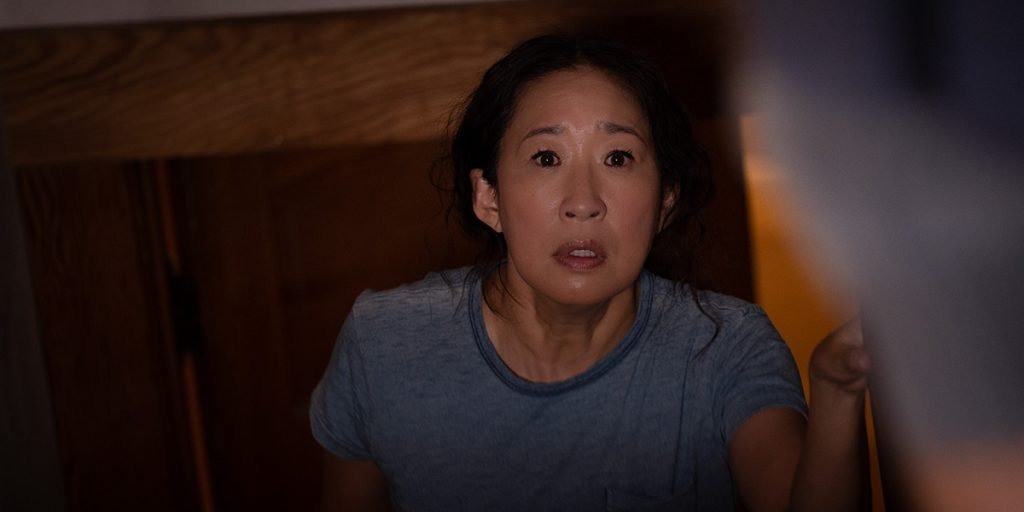Umma is a tale of past generational trauma that is unfortunately bogged down by half-baked set pieces and horror clichés.
Some of the most well-known horror films in Asian cinema deal with family trauma (or the sins of the fathers) by employing ghostly spirits or possessions into the narrative. It’s very intriguing how directors like Kim Jee-woon, Kaneto Shindō, and Shinya Tsukamoto use their respective cultures and blend them with the horror aspects to create their innovative and alluring stories. It’s underappreciated if you ask me. Films like Onibaba, Noroi: The Curse, Kotoko, and Ringu deserve a more prominent and broader spotlight in the mainstream space of horror cinema. Nevertheless, they are as impressive as they are thrilling and awe-inspiring. Recently, Iris K. Him’s feature Umma, the Korean word for mother, was released worldwide out of the blue. I don’t know if it was poor marketing or something else, but it got into my radar once the trailer was released (and I’m constantly checking for movie’s release dates, yet this one took a long while). Having said that, I was still excited to see how its narrative developed and if it had references or inspirations from the previously mentioned (or other) films. Unfortunately, it disappoints at significant levels, and it was a mistake of mine to put it in high regard with its contemporaries.
Starting with a quick sequence of torture via electric shock, Umma follows Amanda (Sandra Oh, of Quiz Lady) and her teen daughter Chrissy (Fivel Stewart) as they live a quiet and direct life on a rural farm. We learn that Amanda is a first-generation Korean American who has managed to find success in the harvesting industry by selling honey. Like many movies about people who like quiet and simple lives, she’s disconnected from the world because of a past traumatic experience that made her turn her back on the family. The main reason for this trauma comes from her abusive and pitiless umma, as seen in a couple of short sequences. Amanda still connects with her friend Danny (Dermot Mulroney), a local shop owner, but other than that, no one else. Things start to change when her uncle finds her at her reclusive home to deliver the news that her mother has passed. It’s been months since her passing, albeit it took so long to tell Amanda the news since she’s been hidden from her family.
Her uncle leaves her mother’s remains and warns her about honoring the ancestry by giving umma the proper burial. If Amanda doesn’t provide the proper burial, her spirit will get angry and curse her family until it is fulfilled. Umma has some great ideas about generational trauma and its effects on the kin. That part of the narrative is actually terrifying, on paper, because it can happen (or has happened) to a lot of people. However, the movie doesn’t seem to offer anything, either old or new, to the table; it only contains the themes of a woman haunted by her past, and it’s on a surface level. These themes are set during the first fifteen minutes, and for what’s left of the film, it does nothing with them inside the horror genre realm. The story of a woman rejecting her heritage and raising her family far away from it seems like a compelling tale to tell, and it hasn’t been seen that much in modern cinema.
However, when the director Iris K. Him tries to add horror elements, which are (again) basic transcriptions of the horror tropes we have come accustomed to (jolty editing, the “quiet, quiet… bang” jumpscares, wailing music cues, the disappearing ghostly figures, etc), it never blends well with the narrative at hand. There are some moments with great emotional weight, yet they do not feel earned due to the half-baked elements surrounding the film. The movie thinks the audience is with them all the way through, relying on a “palpable” mother/daughter relationship, but it’s simply not compelling nor engrossing.
Of course, Sandra Oh is an engaging screen presence and gives her all to the role (even if it’s written inadequately). And her screen partner Fivel Stewart has some scenes where we care for her character. Nonetheless, it is dragged down by undeveloped thematics and by-the-book horror tropes. Even with Sam Raimi attached as a producer (which can cause people to think there would be more in store), Umma would have worked better as a drama with some magic realism attached (as a representation of the spirit) instead of a basic and almost lifeless horror picture.
Umma is now available to watch on digital and on demand.

